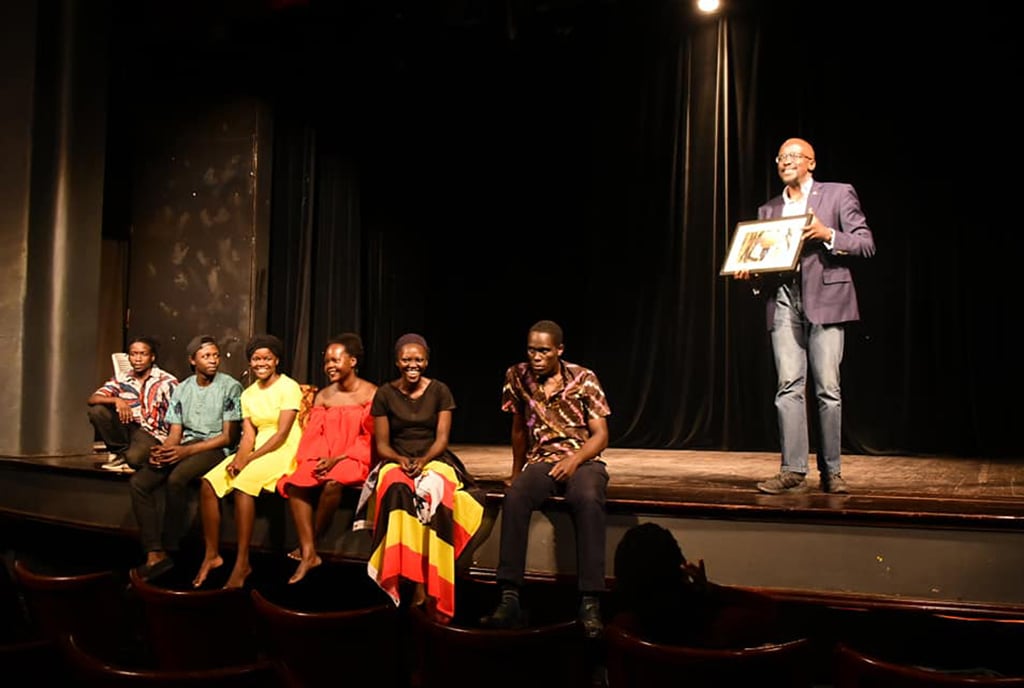Prime
Creatives’ want old laws amended to accommodate women

The Ebonies in a scene of one of their theatre productions at Theatre La Bonita. Formed in the 1970s, the theatre outfit is one of Uganda’s oldest and most consistent groups. PHOTOS/EDGAR R. BATTE
What you need to know:
It’s against this background that Uganda is among seven African countries selected for a three-year Mastercard foundation-powered comprehensive research project on disseminating evidence based solutions on issues negatively impacting women creatives.
The deputy chairperson for the National Cultural Forum (NCF), an umbrella body for about 67 Cultural and Creative Industries (CCIs) associations representing over 386,000 people has appealed to line ministries like that of gender to ensure that laws regulating the sector are amended.
According to Mr Charles Batambuze, the laws regulating the sector are ancient and that they do not address current problems faced by mostly women.
“The national laws concerning the arts have not taken into account issues of women. They have not, for example the national cultural center act is of 1959. There is another one it is called the stage play and public entertainment act, 1949. Way back before the women emancipation movement. So those laws really favor men," Mr Batambuze said on the sidelines of a behind the scenes research engagement aimed at ending marginalization of female creatives held in Kampala and organized by the International Center for Research on Women (ICRW)
ICRW, a US-based non-profit organisation with offices in India, Kenya, and Uganda aims its work at promotion of gender equity, inclusion and shared prosperity within the field of international development.
According to Mr Batambuze, women access to business opportunities in the creatives sector has been frustrated.
It’s against this background that Uganda is among seven African countries selected for a three-year Mastercard foundation-powered comprehensive research project on disseminating evidence based solutions on issues negatively impacting women creatives.
Other countries are Ethiopia, Ghana, Kenya, Rwanda, Senegal, and Nigeria.
Gender Ministry Commissioner for culture and family affairs, Ms Juliana Naumo said that the lack of enough research data in the billion dollar Africa creative industry has led to loss of revenue for governments and marginalisation of some sector actors.
“One of the biggest challenges at national level is absence of evidence based data. The current mapping we have was done in 2014, we are now in 2024, so many years back. So we believe that with scientifically proven evidence, we shall be able to justify the contribution of female young artists to the economy to be able to lobby for financing and the status of artists in all ways.” Said Ms. Naumo




